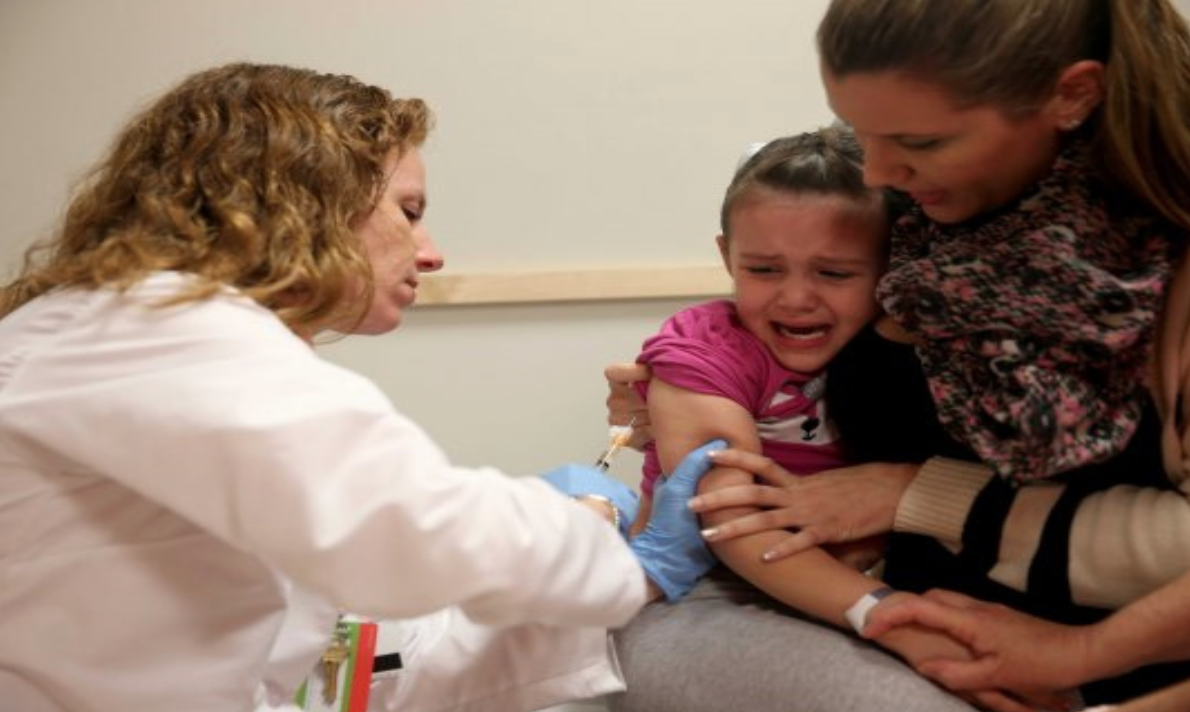Measles outbreak sparks discussion about vaccines

With measles cases on the rise, health professionals, school administrators and government officials are debating whether or not vaccinations should be mandatory.
By Mikki Stacey, Staff Writer
Symptoms: fever, cough, runny nose, pink eye—leading up to a rash.
Diagnosis: measles, a viral illness that is spread through contact with an infected person.
In January, 102 people reported having measles. 92% of these cases are the result of an outbreak at California’s Disneyland. With the disease, the worry has spread to Minnesota as many may have contracted the illness from an infected student of the University of Minnesota. Twelve other states also have reported cases, including Pennsylvania’s Cumberland County.
This small epidemic has fueled the vaccine debate. Several schools in states with multiple cases of the measles have asked unvaccinated students who might have been exposed to the virus to stay at home.
Some are considering, not just asking, but creating a formal ban on unvaccinated students. Harsh as this may sound, it may be best to err on the side of caution. Ac- cording to Arizona’s state health director, “This is a critical point in this out- break,” because an unreported case could greatly exacerbate the outbreak.
The U.S. was considered measles free in 2000. January 2015, however, has had more cases reported than most annual totals since that year. The illness is so problematic because it is very easy to spread. An infected person is contagious for four days before they develop the rash, and they continue to be contagious for four days after. The virus will survive for two hours on the surface of whatever the patient may have coughed or sneezed on— thus the appeal of “herd immunity.”
Herd immunity works to shield those who cannot be vaccinated, like infants. If one person is infected, the herd will prevent it from reaching the unimmunized. To obtain herd immunity, however, would require get- ting children vaccinated quickly. Two doses of the vaccination are recommended because it does not take effect in about five percent of people who only receive one dose. Though the disease is easy to spread, it is not usually fatal. Measles may kill one person out of every 1,000 infected—a number we are not yet terribly near.
Gettysburg College does not feel threatened by the illness. There has only been one isolated case in Pennsylvania, and nearly all students are required to get their vaccinations before attending the college. If you are concerned about whether or not you are up to date on your vaccines, the Health Center recommends contacting your usual health care provider.
